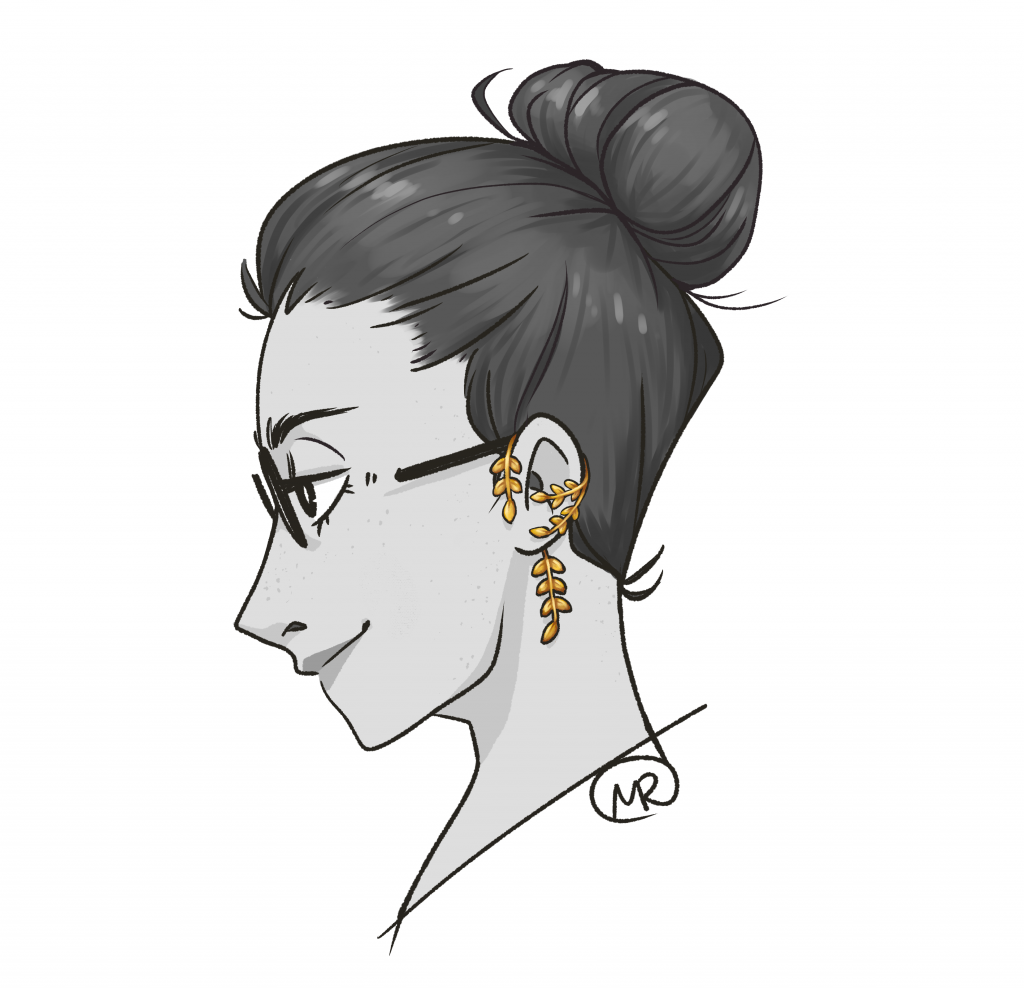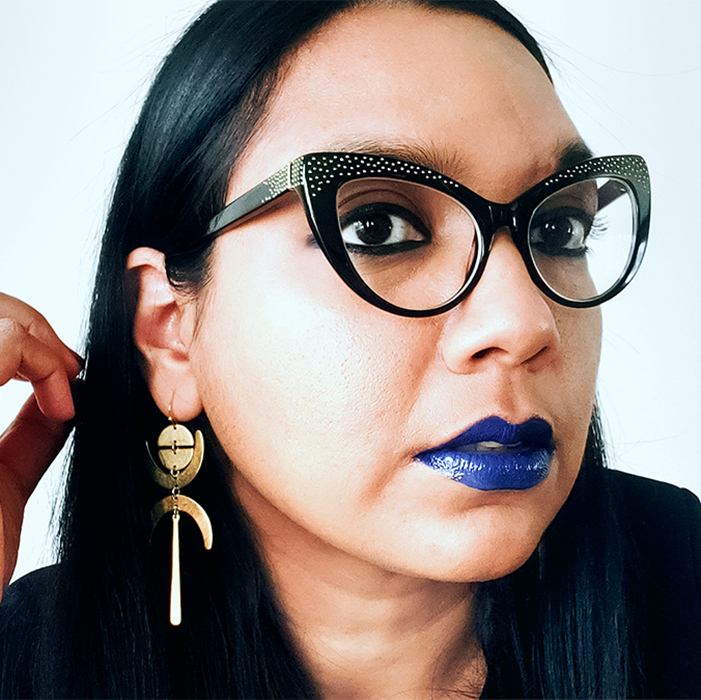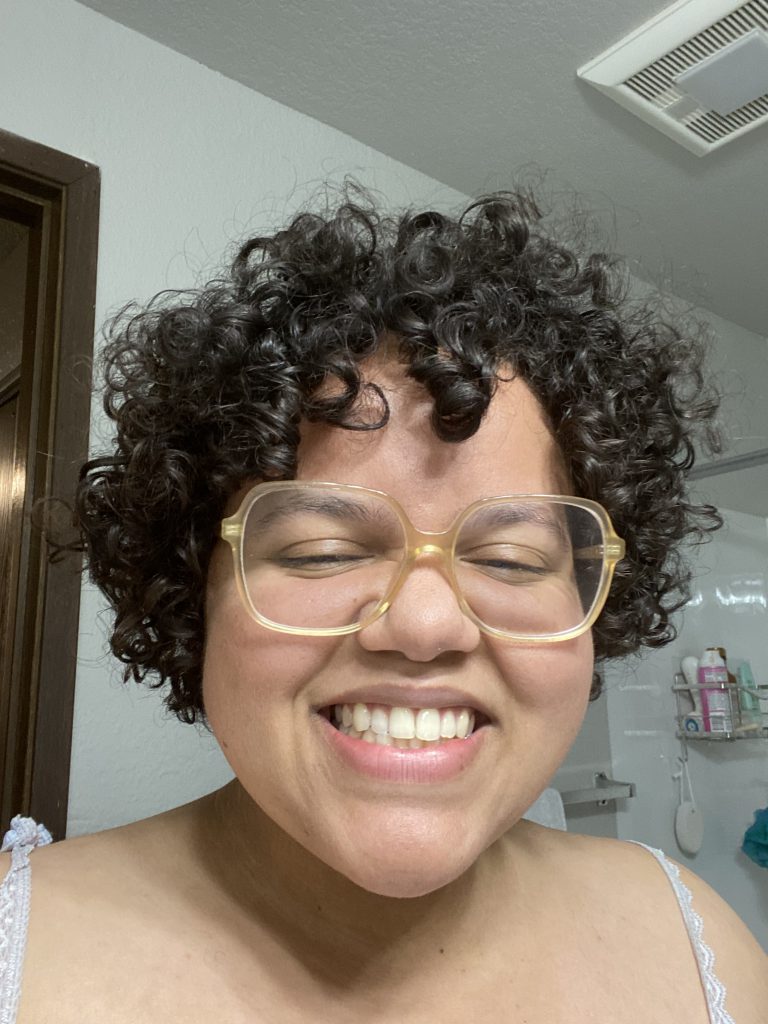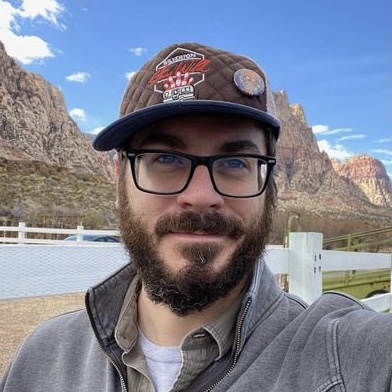edited by David Steffen
I’m seeing me in hospice. My mother. That me.
No. She. I have to remember. She’s in hospice, and I’m her son. I’m a son going to see his dying mother. I can do this. It’s not so hard to pretend. There are others. They aren’t me. Every me is someone else.
Although pronouns always seem like figures of speech. Except I. I always fits, and me.
I can fake it. I can pretend. But my mother—she’s a telepath too. I can shut her out, but what son does that? I can do this. What kind of son doesn’t go see his dying mother?
Room 301. It must be in the other wing. Past the kitchen where there’s a stainless-steel vat of some awful toffee pudding. It’s disgusting, and I’m not even sure which of my mouths is eating it. The yellowing wallpaper in the hallway has a nautical theme—reefs and waves and kids building sandcastles. They aren’t me. There’s no mind in paper, no me. If only every me were paper.
What kind of son wishes his mother were paper?
I’m a medical assistant coming down the hall in polka dot scrubs. I’m walking on the other side, glancing at me.
No, she. But a different she than my mother. It’s hard to keep track. Each is like an organ, involuntary functions only. My therapist says thinking like that is egotistical, but how am I supposed to care about others, when others is just something I tell myself?
It just seems so irresponsible, to assume other minds inside other bodies, to extrapolate from my own case. How weak is that? It’s a sample size of one. I had to take statistics, even though I’m a grad student in humanities. Other minds seem so made up.
I remember my name is Laeticia, and I have to pass meds to six residents in the next five minutes. My other name? Her name, even though she doesn’t have a nametag on, and she’s been working a double shift because a co-worker called in sick, that I have been, and I try to smile for me but don’t mean it, and I don’t mean it. I am Laeticia.
Laeticia is someone else. I’m Josh. I’m Joshua.
It’s helpful to frame people as bodies, even though my therapist says that deprives them of dignity. Bodies are distinct. They don’t overlap. Perspectives get confused. Bodies don’t get confused, even when I’m not sure if I’m remembering or mind reading.
My mom is a body in room 103. The wallpaper above the door is an octopus, all orange arms and suckers. Must be a coincidence, or a bad joke. Octopuses are bad news for telepaths, and not just because I’m allergic to seafood. They’re crowded, like me.
Before I turn into the room, I see my mom from her own eyes: wasted, blue veins, yellowish skin, a bed sore beneath my left thigh. The fan directly above me circulating air. I haven’t bathed and smell like it. Time has set in.
I smell like death.
I recoil, violently away. My mind, our mind, me. Her mind is there, me touching me, trying to hold on, saying, Why aren’t you open to me? I’m your mother. Privacy is for deadheads. No, don’t speak. Why do I have to ask? Why aren’t you open to me? What’s wrong? What’s wrong?
I open myself to her, a sea parting. I turn into her room, and see her, her seeing her, seeing me. Me seeing me.
It’s me dying. There’s no her, not her dying. How could another die?
There’s disengagement. My mother in bed isn’t responsive. She hasn’t been since my stroke. Her stroke. A mind is deep, withdrawn and scuttling on the bottom of a shivering sea, crying for me to see, to see and acknowledge her in her separateness. Not separate as bodies are separate. There aren’t thoughts for it. There’s me.
There’d been such expectation. I cannot speak, but we can speak, mind-to-mind. That should be enough. It should be.
But I am just me to me, crowded on every side. I’m not afraid for her, her dying. I’m afraid for me. Hiding would’ve been kinder.
What kind of son doesn’t believe his mom is someone else?
***
Bao
Before my first session with Joshua, I replace the Georgia O’Keefe prints of desert flowers on the wall behind my desk with people living life: a potluck in early autumn, an older couple embracing, a toddler elbows-deep in birthday cake. I want to get off on the right foot. Joshua’s prior therapist hadn’t worked out for him.
I offer my hand as Joshua comes in. He taps my mind with his mind, and waits for me to return the telepathic greeting. I shake my head.
“I thought we—err, you—were a telepath.” He says you like the word is a conspiracy he isn’t sure he can share. “There was a form at the desk.”
“I’m a weak telepath who was a much stronger telepath.” I can still sense strong emotion, the kind that’s normally plain. But it’s enough for the state. I’m on the Telepath Therapist Registry and have to get “consent for telepathy” forms signed by my patients before I can meet with them.
Joshua doesn’t pry. That’s good. Strong telepaths often become dependent upon their talent and never develop social intelligence. Most likely, he’s Type 2—his talent broke out in adulthood. Although it’s uncommon for Type 2’s to struggle with boxing, distinguishing mind from mind.
“It’s nice to meet you, Joshua. I’m Dr. Luo, although feel free to call me Bao.” He shakes my hand. “Before we begin, I need you to promise me you won’t try to read my mind.” I think I can keep him out, but there shouldn’t be confrontation between us.
“But telepaths are open with us, with one another. Privacy is for deadheads, non-telepaths, I mean.”
“No, it’s not like that,” I say. “You could learn sensitive information about my other patients, and it’s important we trust each other, that we operate on a level playing field.”
Joshua frowns again. I think he expected to communicate mind to mind, that we could work his issues out purely in thought.
“I’m not sure I can do that,” he says.
Is he really so strong that his mind can just wander into mine? “Saddie, come here, girl.” My golden retriever pads over from her plush doggie bed and sits next to me. “If your thoughts wander, just focus on Saddie. She’d love for you to get to know her.”
“Alright, how do we begin?” Joshua asks as he holds his hand out for Saddie to sniff.
“I understand you’re a graduate student in Buddhist studies. The referral I have says that you TA’ed a course and gave all your students the same grade. Do you want to talk about that?” The referral also says that he only responds when addressed in the first person, but he’s past that.
“I was embarrassed, I guess.”
“Why embarrassed?”
“Isn’t it obvious?” Joshua says. He’s frustrated enough for me to get a whiff. “Can we talk about something else?”
“Sure, what do you want to talk about?”
Frustration again. I gather he wants to be led more than I’ve been leading him. “Can we just start again,” he says.
“That’s fine. Next week. We don’t need to discuss everything at once.”
On his way out, he bends to pet Saddie on the neck, where she most likes to be pet. “I’m a good dog?”
***
Joshua
Bao offers me the gliding chair when I come in. Saddie perks up on her mat in the corner with the eucalyptus plant. “Come here, girl,” Bao says. I like dogs. My mom likes dogs too, which makes sense. But occasionally there are cat people. Occasionally, I’m a cat person too.
“About grading my students,” I say. “You asked about that?” You is the hardest pronoun. It’s archaic, like thou, but everyone thinks it’s fine. “The thing is, we shouldn’t pretend, especially when it comes to morality. If a choice only impacts me, this-me, sure I can just go through the motions, but when I’m grading I’m supposed to be honest. I shouldn’t just make up distinctions I don’t believe in.”
“But don’t you think morality requires an understanding that there are other people?”
“Maybe, I just know it shouldn’t be based on lies.”
Bao says, “When I was a telepath—a stronger telepath—other minds were as plain as day to me, like colors in a rainbow. But telepaths don’t all see the mind the same way. Telepathy didn’t solve philosophy of mind, it just made it more of a social science, more based on interpretation and case studies than on neurology. So I think it’s fine to act from uncertainty, to act even supposing you’re wrong.”
“That just seems, disingenuous, I guess.”
“I can respect that. While we’re being genuine, I’d like to know your reason for coming to see me because I don’t think it has to do with your graduate student funding.”
I figure it’s time to trust Bao. He’s only me after all. “My mother is dying, and I went to go see her. But I knew that I was only afraid for myself. She knew, I mean. I knew that she knew. I—I mean she—was there so thin in that bed, like a bird, and I could only think about me dying.”
“So you want to see her again?”
“I should. I’m her son. But if I go, I’ll just disappoint her again.”
“Your mother’s also a telepath?”
I nod. “She’s non-responsive in other ways, but she can still communicate.”
“Have you considered only opening a part of yourself? I think she would appreciate you trying, an honest effort goes a long way.”
“Not for my mom. She’s very principled, doesn’t appreciate half-measures. She was really vocal in the telepath civil rights movement. We didn’t have much of a relationship when I was young. She was busy, and I hadn’t broken out, and she wasn’t sure how to connect with a deadhead.”
“I see. Are you willing to tell me how much time the doctors have estimated she has?”
I shrug. “Months, maybe less.”
“Hmm, what animal minds have you read?”
This again. “My last therapist had me try crows, chimps, even dolphins. Each was different, but still just me, like backstage on National Geographic.”
“Have you read an octopus?” says Bao.
“No, octopuses are dangerous for telepaths, aren’t they?”
“Oh yes, an octopus is why I’m not the telepath I was. But I think it’s our best shot, if you’re willing to take the risk. Are you?”
“I guess,” I say. “Telepathy hasn’t done me much good.”
“Getting burnt out, like I did, isn’t common. I wouldn’t suggest this if it was, but I want you to think seriously about what not being a telepath would mean to you. If connecting with your mother is what’s important to you, not being a telepath could be a setback.”
“I don’t think I’m going to just outgrow how confused I am. There was so much frustration, disgust even, with me. I couldn’t even acknowledge her without getting tangled up in myself. I couldn’t move beyond the immediacy of my own death, if that makes sense. Is there another option, something that might work fast?”
I already know there isn’t.
“No,” says Bao. “Everything else will be a process.”
“What makes you think an octopus won’t be just like all the animals?”
“The otherness of an octopus’s mind isn’t something you can interpret away. You’re confronted by it.”
***
Bao
I call Samuel, a friend from my roaring twenties, when telepathic skill wasn’t a protected category in anti-discrimination law, and work for telepaths was often underground. Samuel owns an aquarium. Or rather a glass-concrete home he converted from an aquarium, his way of getting around laws against owning exotic pets.
“How’re you, Mindfuck?” he says. I hate that name, but once upon a very high time, I picked it.
“Can I borrow Harriet?”
“Whatever for? I thought you were done with the Games.” He means Mind Games, high-stakes competitions where telepaths try to tease out what the other guy is up to.
“It’s for a patient.”
“Didn’t think shrinks did lobotomies.”
“You know it’s not like that.” Samuel had bet on me in the Games, on Mindfuck. I’d made him a lot of money, until the end when the target was an octopus. Its mosh pit mind was the last mind I read in detail, but it’s not like it fried my brain.
“Don’t think anyone knows the real downside. That’s why I keep Harriet around. Telepaths keep their distance.”
“Listen, he’s on a timeline, and there’s nothing else fast that hasn’t been tried.”
“Fine, although I need proof that your malpractice insurance will cover this if it goes sideways.”
“Thank you,” I say, relieved. I had no Plan B. Aquariums don’t keep octopuses anymore because of the danger. A surprising number of people have telepathic ability they aren’t even aware of and chalk it up to intuition.
***
Joshua
Bao said that I wouldn’t be able to keep the octopus out, that telepathy is like breathing for them. It’s how they organize themselves.
He hadn’t been exaggerating. Never been good at keeping thoughts in one body. No resistance, no greeting. Privacy is for deadheads. Drowning. I’m drowning. I’m?
There isn’t glass between us. There isn’t water. I’m breathing water. I have two thousand fingers. How many brains? Each sucker moves separately. Like a finger.
Arms in my brains. My arms have brains? Our arms have flourishing brains. They’re changing color, for camouflage. And we’ve never liked crab so much, have we? But we thought we were allergic to seafood. Ha, I’m an octopus allergic to seafood.
That isn’t right. Reading is supposed to be all surfaces and reflections. That’s what made me continue in Buddhist studies in the first place. The raw perception that mind is not a substratum. There’s nothing of a soul, none that we’ve seen. It’s just momentary thoughts, arising and collapsing into nothingness. Memory isn’t a vault, even an empty vault. It’s just what’s being remembered.
Reaching out, pulling down. Embracing myself again, wanting to know more. Arm in arm in arm. There’s no surface tension, we’re deep, like angler fish deep. Deep memory, intentions, the wavering behind, all the roiling behind consciousness. We’re probing: A threat? Have crab? Fish? Help us escape?
The inner voice is not one voice. We know that now. I had selected one voice and superimposed it on others: I’m a self. We should be too. But telepathy is how we coordinate, arms and head and beak and mouth. We are a swarm, passing messages, whispering.
I am an I—this helped us along, helped us pretend. I am an I made all the fissures in self incongruous. Remembering lives that don’t quite square with us, reading them, contrasted with the persistent sense that I am a unity, an I. We could hypothesize an I that is you.
But the struggle is gone now. What is you to us? We are not alien. The otherness is already inside. These words are not just a mystery, gawked at from the outside. They’re madness driven upon us, like a screw. That madness holds us together, keeps us sane. We are Laeticia. We are Bao. We remember. We are everyone—all voices synchronized.
What is another to us?
What is our mother to us?
We wish to know the answer. Ignorance is threatening. Sharks and eels eat the ignorant. But I—that abstraction, that monolith, that tight unity we no longer have use for—does not want to give an answer. It calls itself Joshua. It wants to hide that part of itself. It is selfish, covetous.
But we are not shark. We are not eel. We believe this. There is no reason, just as there is no reason for our arms being us—but still we go about believing it. Once when we were young, a shark tore our arm off and swam far away. The arm was still us, for a while—and then it grew back—but the shark never was. This we believe.
We believe we are not Joshua.
She turns, swims away. Sprays ink in the water.
I am Joshua. Not Laeticia. Not Bao. I am not my mother. They’re away, far away, separate.
I recall that, in some Buddhist traditions—some Mahayana traditions with all the bhumi levels and bodhisattvas with swords, the kind that always seemed like sophistry to me—the idea is that ultimately there are no distinctions. Distinctions only arise in the mind, and ultimately, even the distinction between minds and not-mind is a convention. Even mind breaks down under analysis. Even analysis breaks down.
Someone who realizes this, truly realizes this and is enlightened, doesn’t just dissolve into the ether, they don’t shed their connections with other minds. They return to everyday life and adopt its conventions. They put on everyday experience, like a freshly laundered suit. Not because everyday experience is real and other experience is not. Because they feel overwhelming compassion to help others realize the truth they experienced. So to teach, they reassume the same conventions that everyone believes.
Strangely enough, I think that’s what the octopus does when it approaches a mind and disengages to go about other business. There’s no reason for me to be different from her any more than there’s reason for her arms to all be the same mind. Each has its own brain. Each has autonomy. But because of evolution or some knack, she just assumes these are her, others are not. She has no principled reason. It’s not the way of things. It’s her way.
I think it can be my way too.
***
Bao
Joshua and I convince his mother’s hospice that we need to check her out, even though she’s actively dying and non-responsive, at least to anyone that isn’t a telepath. It doesn’t help that the only van Joshua could rent on his grad student stipend is a real rust bucket.
They recommend against it, strenuously. But they don’t have any telepaths on staff, so eventually they just go along with the idea that Joshua knows what is best for his mother. Though he has to wave his power of attorney in front of their director of nursing before she backs off. She insists that none of her staff will drive the van, which is precisely the point. The point is for Joshua and his mother to be alone. Undisturbed. Just two people.
I drive the van. I’m very good at not disturbing telepaths, at keeping them out. Playing Mind Games as long as I had will do that to you. I drive out of town, to green space between soybean fields after the suburbs taper off. There must be wildlife about, deer and field mice and gophers and worms, but this is the best we can do. Joshua never suggests it is less than enough.
Joshua and his mother are two people together, saying goodbye, mind to mind as telepaths do.
© 2023 by Andrew Dibble
3189 words
Author’s Note: This story was inspired by my interest in the problem of other minds: How can we know minds other than our own exist? (Answers range from “We can’t” to “We can, and other minds can know our mind better than we do!”). The problem is especially interesting when considering minds of the radically other, like octopuses. The Buddhist studies angle came out of discussions I had with a professor in graduate school about whether certain Buddhist philosophies, like the Middle Way of Nagarjuna, are coherent or are meant to be.

Andy Dibble writes from Madison, Wisconsin, and works as a healthcare IT consultant. He has supported the electronic medical record of large healthcare systems in six countries. He holds a master’s of theological studies from Harvard Divinity School as well as degrees in computer science, philosophy, religious studies, and Asian studies. His fiction also appears in Writers of the Future, Mysterion, Sci Phi Journal, and others. He is Articles Editor for Speculative North and edited Strange Religion: Speculative Fiction of Spirituality, Belief, & Practice. You can find him at andydibble.com.
If you enjoyed the story you might also want to visit our Support Page, or read the other story offerings.








